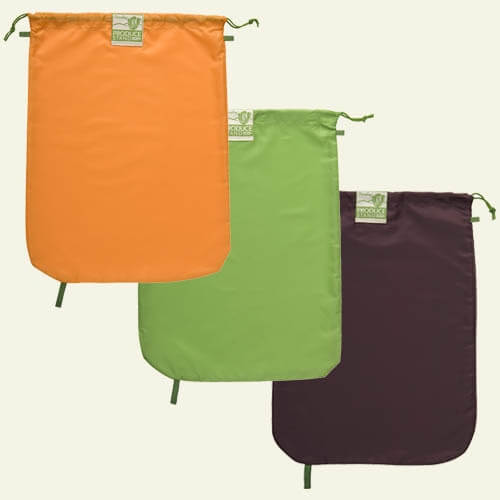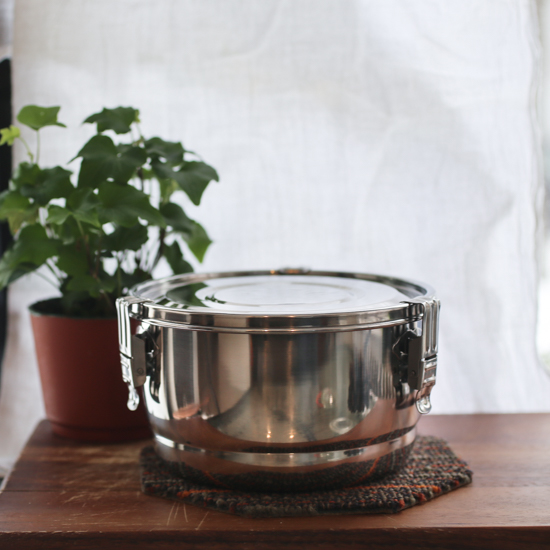Alternatives to Plastic Produce Bags

GLOBAL MARCH for Elephants, Rhinos and Lions [GMFERL 2017]
26th September 2017
10 Industries That Should Thrive From Kenya’s Plastic Bag Ban
13th October 2017It is the seventh week since the plastic ban took effect. Have you seen a difference since then? Well, I have seen less and less of plastic carrier bags on our streets. Carrying sacks has become a trend as people come to terms with the ban. The other well-known alternatives have also taken effect. Supermarket attendants at the cashier always ask whether you want to buy a reusable bag, have a bag with you or will carry the goods as they are. This is progress. Progress that we are moving on in smooth sailing. Hopefully, this will continue without fail.
We, however, need to discuss produce bags and whether we should invoke a total ban on single-use plastics. The plastic produce bags I’m referring to are basically the small clear plastic carrier bags, without handles, used to pack fruits, vegetables and sometimes pastry. This is one plastic bag we can admit has not taken full effect. Traders who still use them claim they still have stock left to use. Is this a black market case as seen in Rwanda where plastic bags are still been distributed even though the country has a total plastic carrier bag ban?
Although there are alternatives to this plastic produce bag, in most cases, costly for every person to be able to purchase. It would also mean one needs to carry a bunch of them when going grocery shopping. These alternatives may be customised to fit individual needs. This is in line with the grocery that does not need to be cut into pieces.
How then are we supposed to pack cut watermelons, papaya, pineapples and even meat?
Over the first few weeks when the ban was in effect, traders were storing cut fruits in buckets or plastic containers. Well, this is still happening but over time, the clear produce bag is still been used. We could use cling film to wrap the cut fruits but isn’t this somehow leaning towards being double-standards. We are replacing banned plastic with more plastic. Traders are also using single-use plastic containers to pack items such as fruit salads, pastries, and snacks. Double standards again.
We could consider banning the whole class of single-use plastics such as non-reusable plastic containers, plastic bottles, cups as well as straws. We could also invest in recycling plants to cater to the foreseeable increase in the use of single-use plastics.
In an effort to reduce our carbon footprint, it all bottles down to the three ‘Rs’; reduce, reuse and recycle.
Grocery Shopping Made Easy
In that spirit, here are better alternatives for produce bags, other than paper bags, that will possibly lead us to a Zero Waste grocery shopping kitchen. Before we begin, remember, shopping in bulk is much easier and reduces waste compared to regularly small pieces every day.
Mesh Bags
Mesh produce bags are excellent low-cost options for farmers’ markets, roadside stands/kiosks or stores. They are small and easy and light to carry as they don’t occupy much space.
Have you seen the purple mesh bag onions are packed in?
You can make your own mesh produce bag.

Mesh Produce Bag | Courtesy
Crocheted Bags
Why not make a crochet bag if you are skilled at it or get someone who knows how to crotchet.

Market tote bag | Courtesy
Cotton DrawString-bags
Cotton is purely organic material and will be a preferred alternative.
Silk Drawstring-bags

Silk Drawstring Produce bags | Courtesy
Stainless steel lunch boxes
A perfect container to store meat or fish and pastry whenever you to the butcher or bakery.

Stainless – steel lunch box | Courtesy
Glass Jars and Bottles
I challenge everyone to take their glass jars when going bulk shopping, ask the attendant to kindly measure your jar before adding flour, seeds, nuts, spices, tea, honey or coconut oil. Then you are good to go and will have no waste plastic wrappers to dispose. [Maybe we should consider having a waste free farmers market.]

Glass jars|Courtesy
To prevent contamination, it is advisable to use one bag for one specific item and regularly wash and air them out.







2 Comments
I’m always grateful for your posts. They come with lovely insights and positivity.
As you have clearly highlighted, the ban has had positive effects on our environment. However, the two major weaknesses have been loss of jobs and lack of better alternatives, for this case in produce bags.
I still think that there is an unrealistic expectation for people to overhaul their lifestyles in order to adapt to living without plastic bags.
To cure this dilemma, I recommend that MENR together with NEMA to complement the ban by evaluating where it might be impossible to live without plastic bags and teach people on how to dispose them properly. Since we still have bread wrappers and biscuit wrappers laying around in the environment, that education and investment in proper facilities (through the local government of course) can help manage this situation.
Thank you for always been a loyal reader. I get encouraged more than you may know.
Yes, there are so many people who still think they cannot live without plastics, especially single use plastics, yet on an individual level we can. Recycling is an expensive option and should be the last resort. A lot of education needs to be done on the impact of these plastics and how we can effectively aid in reducing their production.